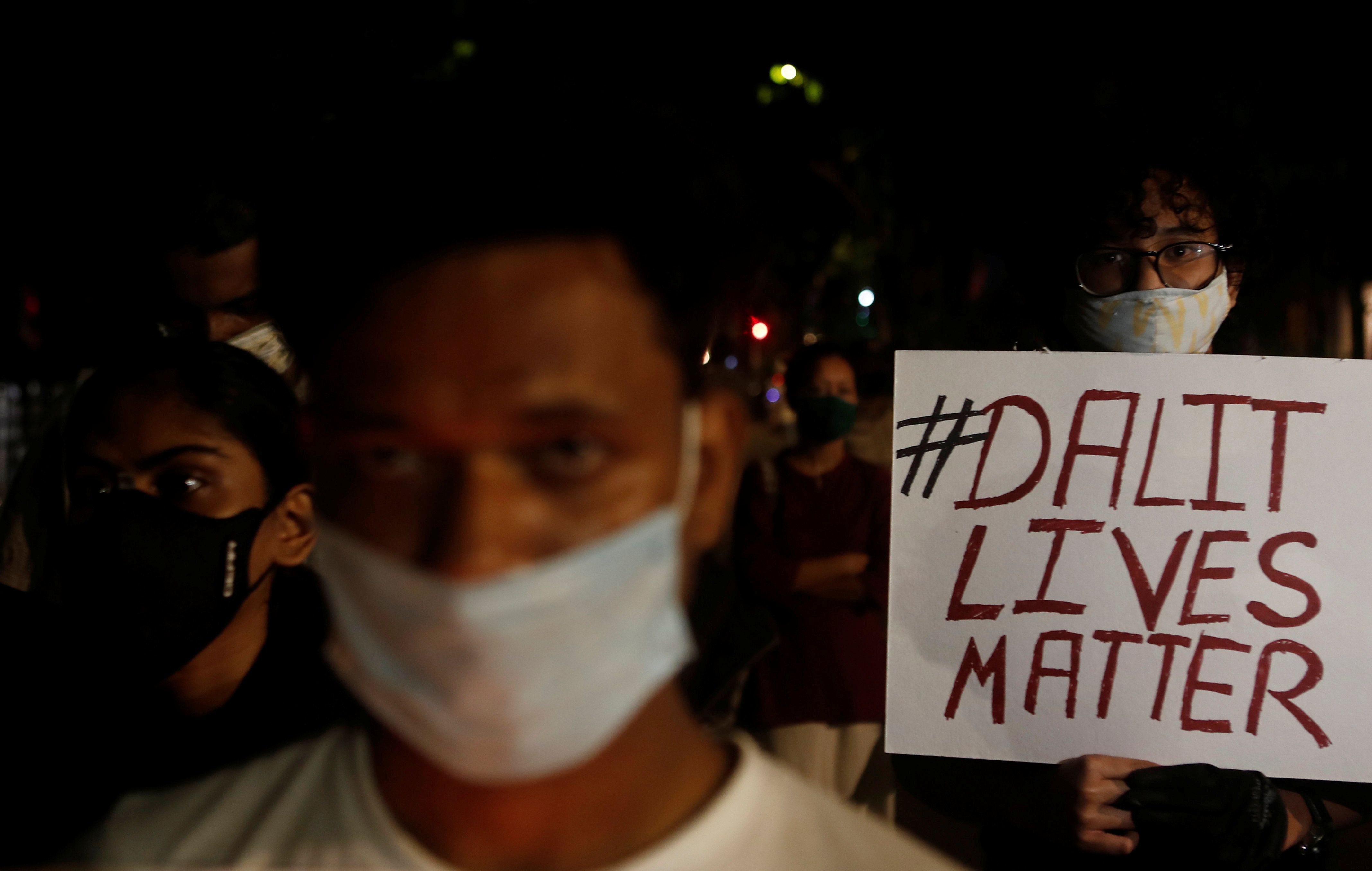What We’re Watching: Indian women & Dalits push back, EU sues UK over Brexit, Israel & Lebanon maritime talks
India reckons with violence against women, Dalits: The deaths on the same day of two Dalit women after being gang-raped has sparked outrage across India. In New Delhi, scores of protesters were arrested for violating coronavirus restrictions after urging Prime Minister Narendra Modi to end the country's "rape culture," while a Dalit party leader called on all members of the lower caste to rally throughout India to demand that the perpetrators be hanged. The tragic deaths have exposed the country's bid problem with rising gender- and caste-based violence. India was one of the most dangerous places to be a woman even before COVID-19, and the pandemic has only made things worse. Dalits — who used to be referred to as "untouchables" under the caste system that the country formally abolished in 1950 — are still victims of severe discrimination by upper-caste Indians. We're watching to see if the anger at these latest deaths turns into a nationwide protest movement that puts pressure on Modi to do more to uphold the rights of both women and Dalits.
EU ups the ante on UK over Brexit: Weeks after Boris Johnson ignited the ire of Brussels by rewriting parts of the UK's exit deal from the European Union, the EU has hit back by launching legal proceedings against the UK for breaching the agreement. The dispute is largely over a proposed new law that would prevent the UK nation of Northern Ireland from following EU trade rules and keeping a "soft" border — a key condition of the 1998 Good Friday Agreement signed by the UK and the Republic of Ireland — while both sides negotiate a final trade deal. European Commission chief Ursula von der Leyen said that the legislation was in "full contradiction" of Johnson's earlier commitments. Brussels has sent London a "letter of formal notice" — the first phase of the legal process — giving the British government one month to respond before the matter goes to the EU Court of Justice. This all comes as Brussels and London are about to enter the final round of withdrawal talks at the EU Summit on October 15, where they hope to finalize a Brexit deal for EU leaders to approve soon — despite the massive gaps that persist between the two sides. Johnson, for his part, has said that the UK will leave the EU by year's end with or without a deal.
Israel, Lebanon agree to maritime talks: After robust diplomatic efforts conducted by Washington in recent years, Israel and Lebanon, longtime enemies who have fought some of the bloodiest wars in the Middle East, have finally agreed to start talks over an ongoing maritime dispute. The talks, to be brokered by the US in conjunction with the UN, will be the first time Israel and Lebanon — who have no diplomatic ties and often clash over land borders and ideology — have engaged in direct dialogue in thirty years. The conversation will center on a decades-long row over a contested area in the Mediterranean Sea linked to three Lebanese energy fields. Both sides will meet in mid-October in southern Lebanon, abutting the volatile frontier where Israeli forces have clashed with Iranian-backed Hezbollah militants and the Lebanese army for decades. (After two decades of war, Israel ended its occupation of southern Lebanon in 2000).